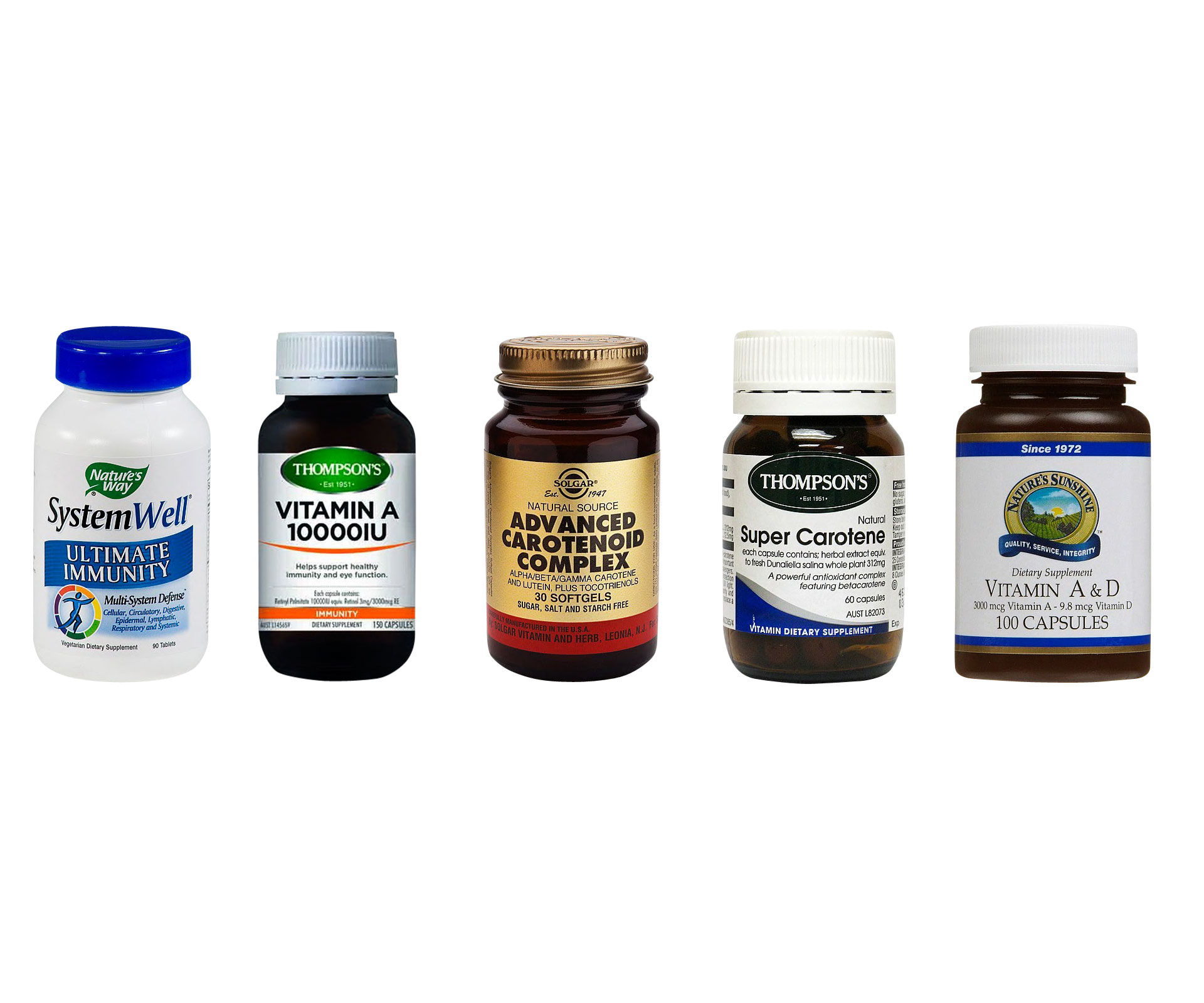Vitamin A, as you might guess, was the first vitamin to be ‘discovered’. A mysterious component of butter fat was promoting healthy growth in tests using rats and mice; a deficiency of this fat-soluble vitamin, referred to then as factor ‘A’, would hinder growth and lead to serious eye damage.
Today, vitamin A is well-known for its role in healthy growth, the development of the eye, low-light vision, reproduction, bone health, and much more.
How does vitamin A affect our vision?
“Vitamin A is one of the most important vitamins for our eyesight,” says Auckland-based optometrist, Zaria Burden. It has two main roles in the eye: creating our tears and helping the retina function normally to detect light.
Women experiencing hormonal changes, such as those brought on by pregnancy, menopause, or the effects of a contraceptive pill are more likely to suffer from dry-eye symptoms on a daily basis. Burden suggests that the addition of vitamin A and omega 3 can help. In fact, recently developed eye ointments and drops include vitamin A, with promising research also underway to determine whether it can improve degenerative eye conditions.
Sustained vitamin A deficiency, often a problem in developing countries, ultimately leads to xerophthalmia, “which is when the eye is devastatingly dry because there is no longer any tear production.” This can ultimately result in scarring on the eye and ‘total blindness,’ explains Burden.
Rene Schliebs, nutritionist and women’s health expert, says that in addition to eye health problems there is a variety of minor and serious issues that can arise from insufficient vitamin A, including, ‘poor immunity, a poorly functioning thyroid gland, poor growth and development, acne, poor sense of taste and smell, sinus problems and dry hair.’
How does vitamin A affect women who are pregnant?
It is essential for pregnant women to have healthy vitamin A levels as it is responsible for “strong bones, healthy skin and eyes, hormones, and mineral uptake,” says Schliebs. “It gives stem cells their signal to mature into organ systems such as the liver, heart and lungs.”
Low vitamin A levels can cause reproductive health and infertility issues in women, and the consequences of unhealthy vitamin A levels in pregnant women can be truly tragic. Insufficient vitamin A is associated with ‘defects in the heart muscle of the foetus, complete absence of the eyes, prolonged labour and miscarriage’.
However, studies have conflicting views on what is an appropriate, healthy level of the vitamin. Some studies, says Schliebs, warn that more than 10,000iu [international units] a day can ‘increase the risk of birth defects’ but adds that this does not distinguish between ‘natural food sources, multivitamins and fortified foods’. Other studies on the subject indicate women could consume as much as 50,000iu of vitamin A
without supplementation and not see increased ‘malformations’.
The general rule, explains Schliebs, is to limit the intake of vitamin A to 10,000iu. And if women have any doubts, Schliebs recommends they get their vitamin A from carotenoid foods like leafy greens and brightly coloured fruit and vegetables.
Because the vitamin is fat-soluble, it can accumulate in the body, ‘therefore high doses of supplements should not be taken for long periods,’ explains Schliebs. Depending on the source of the vitamin A, ‘hugely variable’ doses can lead to toxic levels in the body. “The range is around 26,000iu to 1,000,000iu per day for two years.”
For this reason, anyone considering supplementing, especially pregnant women, must consult with a medical professional first.

From left to right: Nature’s Way SystemWell Ultimate Immunity, $36. Thompson’s Vitamin A 10000IU, $26. Solgar Advances Carotenoid Complex, $30. Thompson’s Super Carotene, $24. Nature’s Sunshine Vitamin A & D, $28.
Good dietary sources of vitamin A include:
• Chicken livers
• Cod liver oil
• Butter
• Whole milk
• Kidneys
• Egg yolk
Uptake is improved in combination with:
• Vitamin D
• Iodine
• Tyrosine
• Vitamin C
• Vitamin E
• Zinc
• Vitamins B2, B3, B12
• Calcium
• Carotenoids (which can be converted into vitamin A, particularly beta-carotene)
Words by: Rachael McKinnon
Photos: Getty Images


